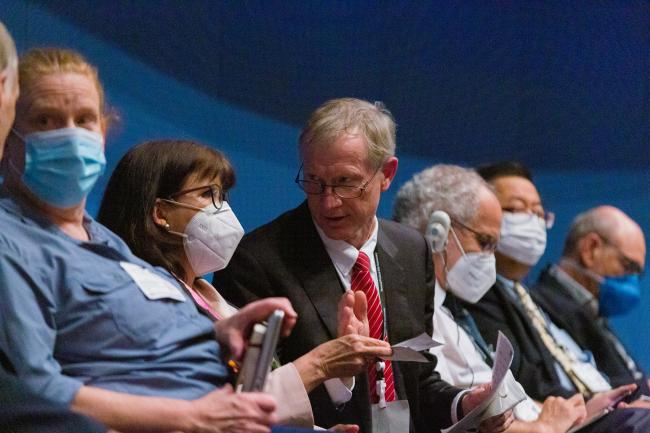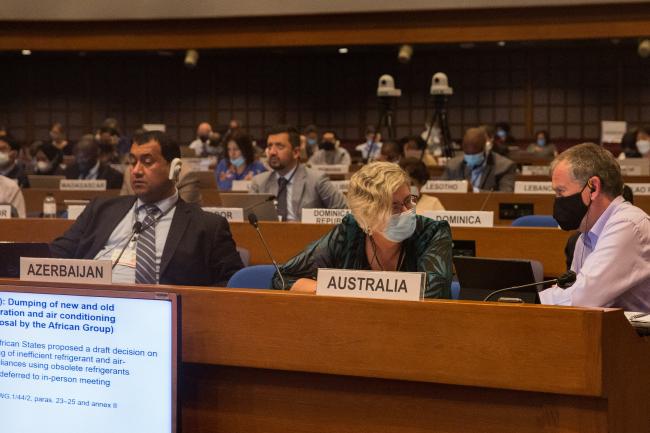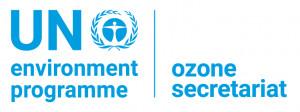“Once a new technology rolls over you, if you’re not part of the steamroller, you’re part of the road.” – Stewart Brand, writer
Technology shifts dominated discussions — namely, how countries can successfully shift away from technologies that use ozone-depleting substances (ODS) in activities as diverse as fire protection, refrigeration and pest control and promote adoption of more energy-efficient alternatives with low global warming potential (GWP). Where alternative technologies exist, many countries highlighted lack of access, due not only to cost factors, but also to issues such as lack of availability of parts and servicing, and insufficient potential profitability for importers. “The sad reality” for small island developing states (SIDS), one delegate lamented, is that countries with low market volume can institute incentives and other policy measures to promote adoption, but the technology still may not reach their shores.
Many delegates from Article 5 countries—developing countries with low levels of ODS usage per capita—expressed their concerns about becoming “the road” as the steamroller of technology change gathers pace. Some technology alternatives may imply a return to older substances that were previously phased out due to their flammability, raising fears about the applicability of revised safety standards in hot climates.
Parties also took up discussion of an African Group proposal on tackling dumping of obsolete technologies in poorer countries, often involving items no longer meeting standards in other countries or even export of broken-down equipment that might more accurately be described as waste. Delegates noted overlaps with the Basel Convention’s mandate, and the need to strengthen prior informed consent (PIC) procedures. A contact group was established to take up discussion of energy efficiency and the anti-dumping proposal, co-chaired by Australia and Indonesia.
An agenda item on terms of reference for a study of funding needs in the 2024-26 triennium was uncontroversial. A contact group, to be co-chaired by the US and Burkina Faso, was quickly established, with the terms of reference for the current triennium to be the starting point for further discussion. This group and the contact group on replenishment of the Multilateral Fund (MLF) for the current triennium 2021-23 met in the evening.
The Technology and Economic Assessment Panel (TEAP) also presented its 2022 report for discussions. The panel highlighted progress in transitioning to ozone-friendly alternatives with low GWP, and also outlined proposals to restructure the TEAP to reflect the broadening scope of some of its technical options committees. Discussions addressed nominations for critical-use exemptions for methyl bromide for 2023 and 2024 from South Africa, Australia and Canada, with one African delegate pointedly asking when such requests for exemptions would no longer be put forward. They also considered the future availability of halons, used in fire extinguishers, and their alternatives.
By the close of day, delegates were clearly starting to feel the pressure. The proposed timetable for the contact groups on replenishment for the 2021-2023 triennium and terms of reference for a study into funding needs for the 2024-26 triennium, to run all evening until 9:00 pm, was re-set when it was noted that “there’s no restaurants open after 9 o’clock.”
All ENB photos are free to use with attribution. For this meeting, please use: Photo by IISD/ENB Ash Appleton
To receive free coverage of global environmental events delivered to your inbox, subscribe to the ENB Update newsletter.























